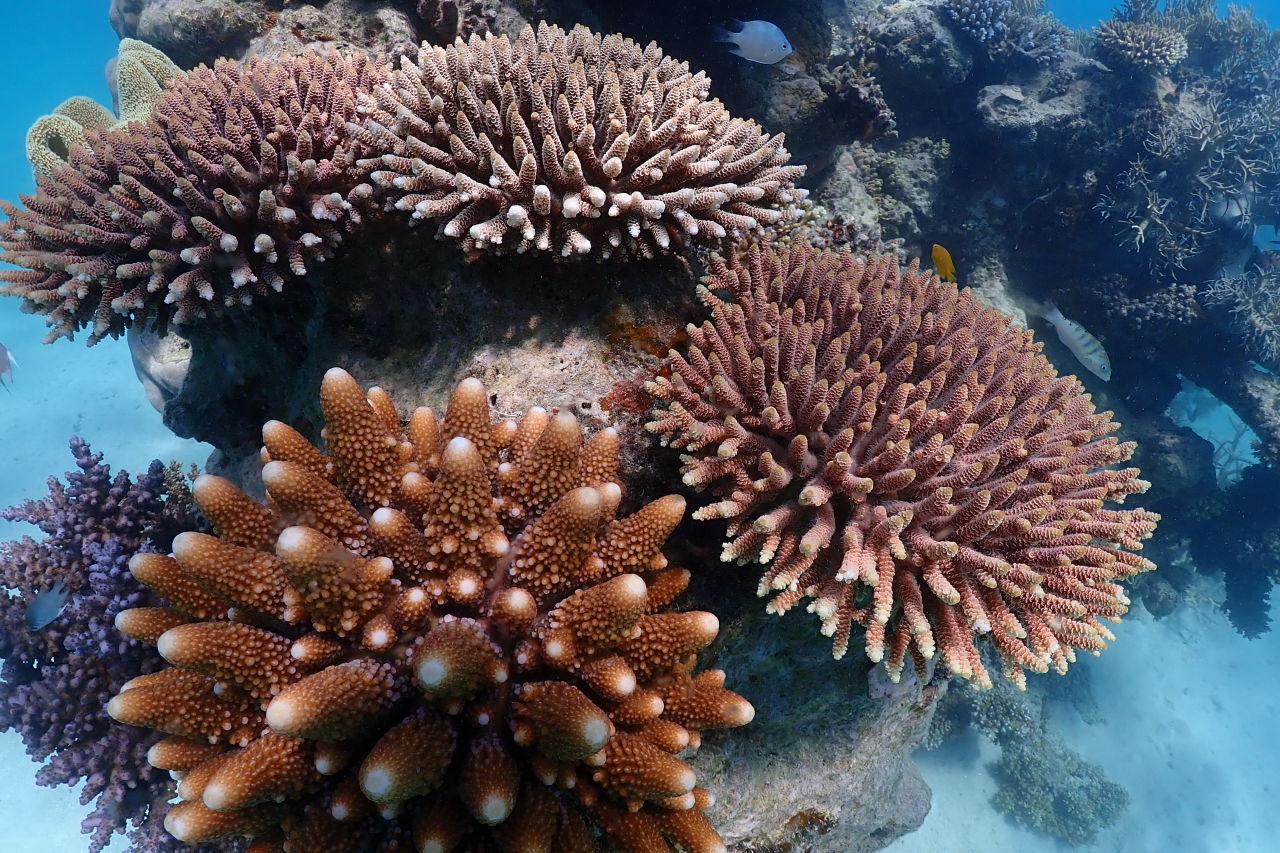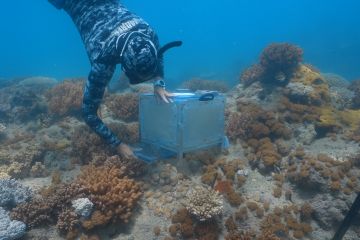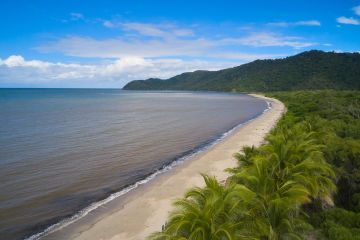News ·
World-first tourism and research partnership fast-tracking Reef recovery
In a major breakthrough for world-first local reef restoration partnership – the Coral Nurture Program - the first coral fragments planted on the Great Barrier Reef have reproduced, just three years after being planted.
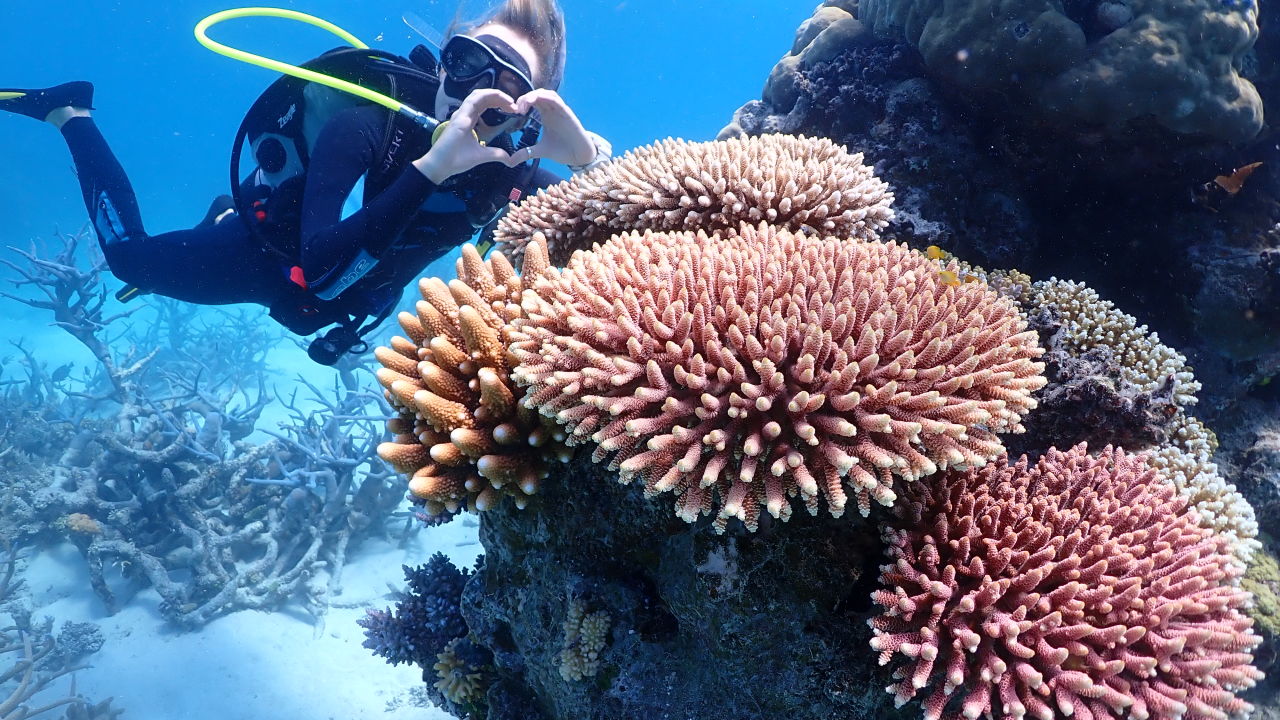
In 2018, our partners salvaged tiny 5cm coral fragments from the seafloor that had broken off due to storm activity and planted them at Opal Reef, near Port Douglas. In a first for the Reef, these corals have rapidly grown to maturity (up to 41cm) and recently spawned, giving fresh hope that they’ll produce thousands of baby corals over the course of their lives and help repopulate damaged reefs.
So far 60,000 corals have been attached to the Reef using the innovative Coralclip device, a simple metal clip, which is the key to rapid re-planting methods.
The device joins the corals to the Reef without the need for chemical bonding agents. It’s faster and cheaper than traditional methods and has contributed to an impressive coral survival rate of 85%.
The Coral Nurture Program is a unique partnership between tourism providers and researchers, which aims to rehabilitate damaged reefs and boost the resilience of healthy areas by pioneering rapid re-planting methods and cost-effective coral nurseries.
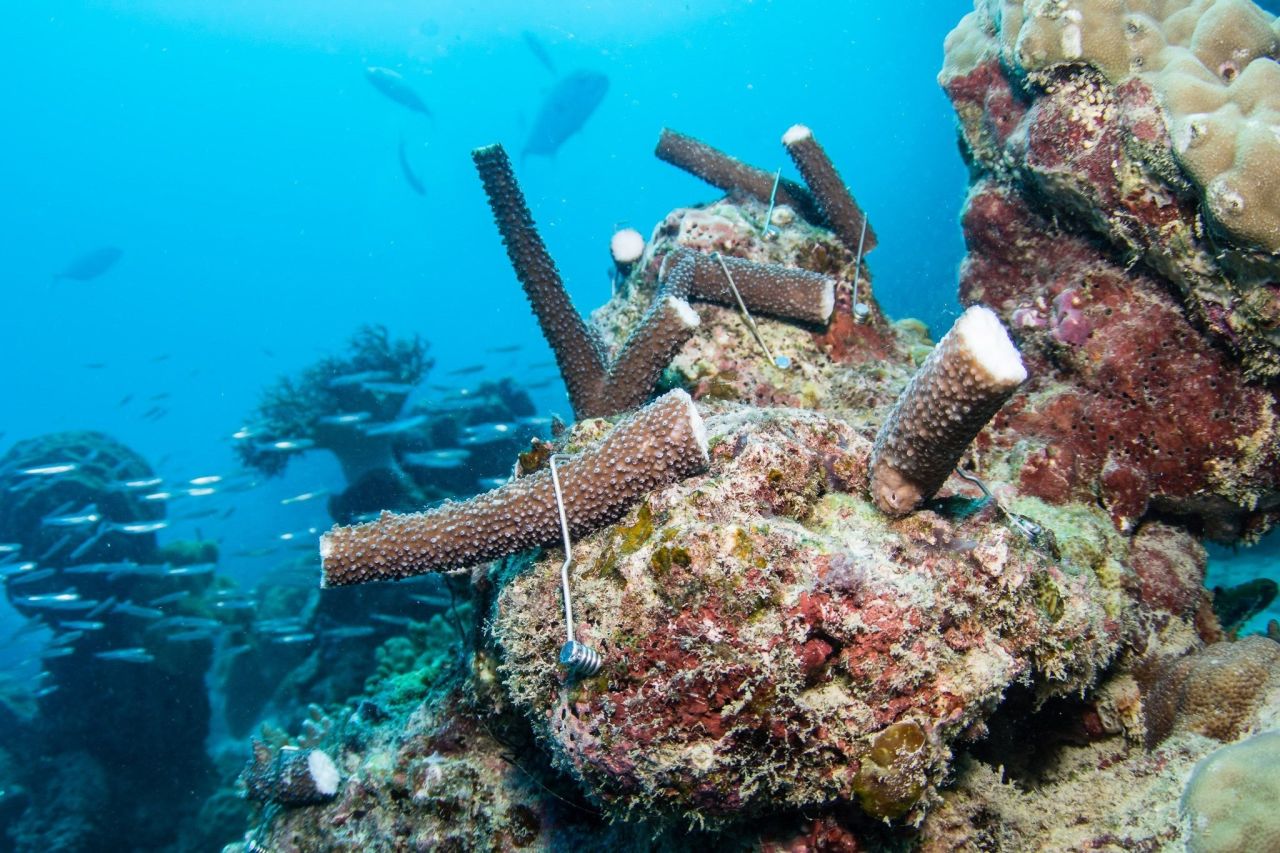
Outplanted corals. Credit: Wavelength Reef Cruises
Great Barrier Reef Foundation Managing Director Anna Marsden says combining the knowledge of marine science experts and the resources and experience of the tourism industry has enabled us to fast-track local reef restoration.
“Insufficient global action on climate change is taking a serious toll on the health of our Great Barrier Reef and coral reefs around the world. This is the critical decade in which to act with urgency,” says Ms Marsden.
“In order to save this irreplaceable ecosystem, we have to urgently reduce emissions as well as fast-track the recovery of reefs damaged by the impacts of climate change we’re already locked into.”
Owner of Wavelength Reef Cruises and co-founder of the Coral Nurture Program John Edmondson says a major goal of the project has always been to turn planted corals into adults capable of producing thousands of new coral larvae every year.
“Reef tourism operators already undertake a number of site stewardship actions to help monitor and protect live coral cover,” he says.
“This program enables those actions to extend to actively growing and planting corals to boost live coral cover at sites where it’s beneficial, such as assisting recovery after a cyclone or a large storm.”
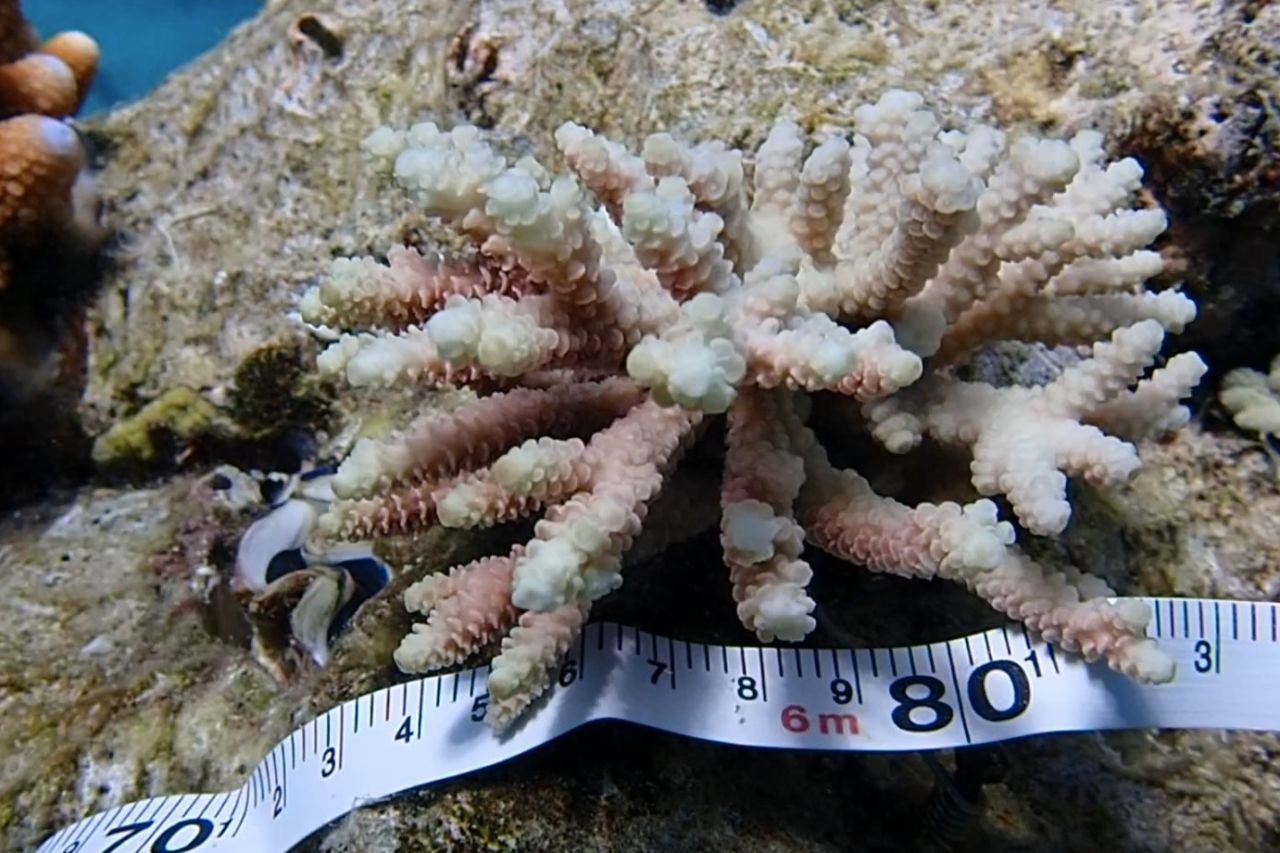
One of the outplanted corals. Credit Lorna Howlett - University of Technology Sydney
University of Technology Sydney PhD student and Coral Nurture Program researcher Christine Roper witnessed the corals spawning and noted this was another major step forward for industry-led coral restoration.
“Witnessing corals that were planted only three years ago now successfully reproducing is not only a huge milestone for reef rehabilitation efforts on the Great Barrier Reef, but also demonstrates the efficacy of the program and the potential for reef regeneration to buy us valuable time while we address critical climate change issues,” she says.
“To see planted corals successfully reproducing next to their wild (natural) counterparts was an incredibly exciting moment. The knowledge that those coral larvae will now contribute to the regeneration of those reef sites, and that we could reach this stage in only three years, demonstrates the effectiveness of the Program. This is particularly relevant during the UN Decade of Ecosystem Restoration and highlights the importance of industry-led cost-effective and scalable approaches for reef rehabilitation.”
The Coral Nurture Program is funded by the partnership between the Australian Government’s Reef Trust and the Great Barrier Reef Foundation, and in partnership with DIAGEO Reeftip Drinks Co.
